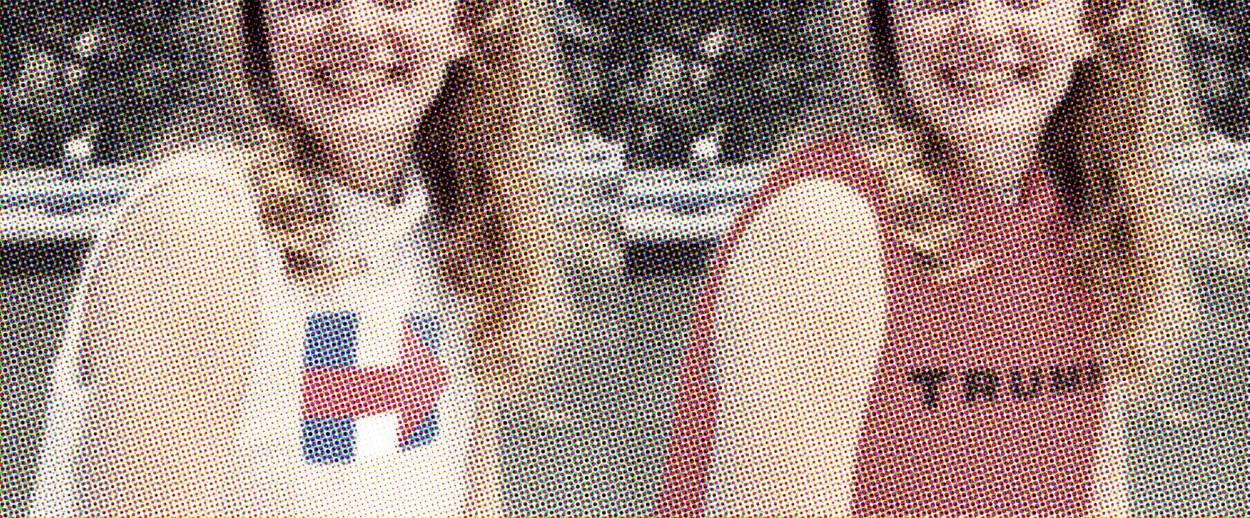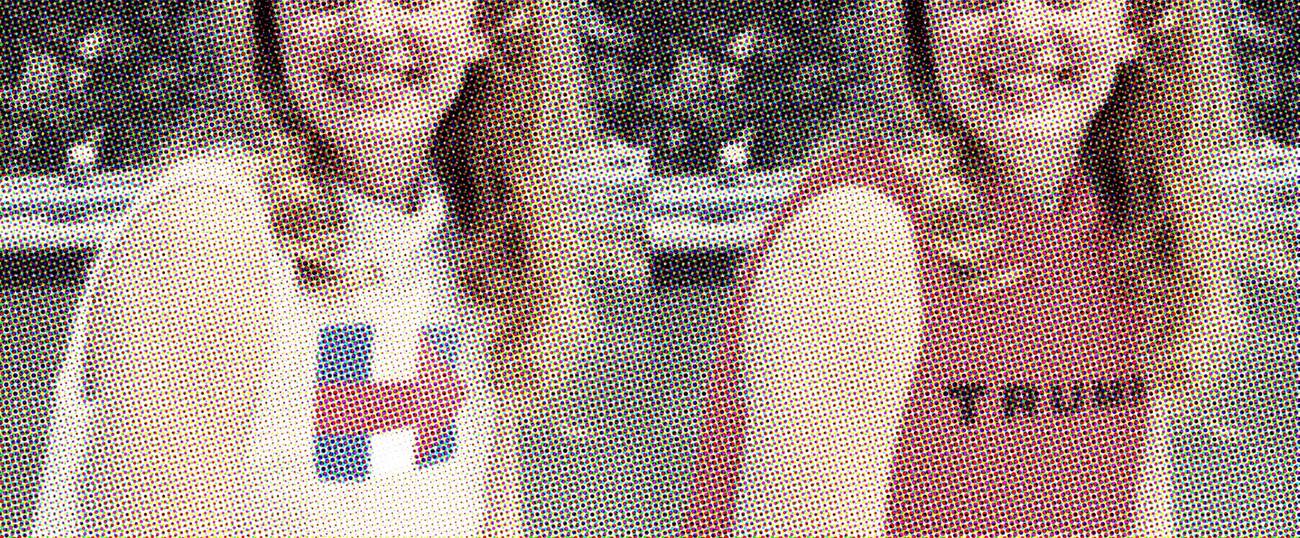Bridging the Political Divide
From a New York Jewish liberal to everyone on the other side: Our differences are real, but so are our similarities.




I’m a liberal. A soppy, angst-filled, New York Jewish liberal. I have always known that in the heartland, New York Jews—cosmopolitans, subversives—are less popular than cattle rustlers and about as trusted as used-car salesmen. But now, this week, it is clearer than ever. If this were Communist China in the days of yore, I would be standing in a public plaza wearing a sign around my neck inviting mockery from The People.
My Jewish politics began with rooting for Jackie Robinson each time he was up at bat, and when the adults around me wept near our oversize radio when the news of FDR’s death arrived. I believed in America—not Joseph McCarthy’s America, not Jim Crow’s America, but a nation indivisible and welcoming to all. I also believed in our laws. I was sure that the bad ones that hurt people would change, and the good ones that helped people would not be repealed. I thought, as liberals think, Hobbes was wrong: We don’t have to devour each other. I had a silver necklace with a peace sign that I wore every day—not just when we marched against the war or for women’s rights or against the nuclear bomb, riding buses back and forth to Washington, D.C., with our children in strollers, sticky from melted ice cream.
There was a little hippie in my heart who really did believe that love might conquer all, despite the overwhelming evidence to the contrary. It’s lucky that no one can fine or imprison you for mistaken notions—this week, at least.
Now I am thinking of the resurgence of anti-Semitism around the globe and most particularly in Trump country, in Breitbart world. I am trying not to hate back, not to panic, but to remember that this anti-Semitism, this dislike of me and mine, is as American as a picnic on the Fourth of July. All it takes is a leader in a bad climate where the crops failed, and the goose-stepping begins again.
But before I go into my metaphorical fallout shelter, I want to say something to those for whom the words “New York Jew” conjure up something decidedly turd-like, separate from the “real” people, white Christians, whose God was killed by people from New York. (Actually people whose descendants some 1,000 years later would end up in New York.)
Wait a minute, let’s talk.
We have a few things in common, and they are important things. We had parents who were sometimes loved and sometimes not so lovable. We had disappointments. You didn’t make the football team, I lost my best friend. You and I both met someone we intended to be our life partner, but it wasn’t always meant to be. Our families both contain combinations of old mistakes and new hopes. True: Some families are pure as if in a Laura Ingalls Wilder dream. That is equally so in Brooklyn and in Mobile.
We mothers all gave birth with the same exhilarating rush of passion and fear and joy, and we know the worry that is always there. Liberal New York Jews have children who make them proud and children who float off in clouds of alcohol or worse; this is also true of you out there in the heartland. You have a church, I have a synagogue. In my synagogue, people mourn and rejoice and watch the seasons go by, marked by this holiday and that. You, too. Our belief in God is essentially the same. So is our nonbelief in God. We both understand Job all too well, and voices in whirlwinds have not put to rest the questions raised—not for me or for you.
I may wear clothes you think are odd. You may not like the movies I like or listen to the same news stations that I do, but you, too, just like me, want things to be better, safer, kinder. You don’t like bullies, and I don’t, either. You don’t want to die alone, and neither do I. You are afraid of the results of an MRI and so am I. You want health care and you want to be free of debt and so do I. You may think Jews (or Syrians or black people) are to blame for what is wrong in your town, and you may think that Jews are too rich or powerful and control the banks and the big businesses. They don’t. You fear Jews. I fear your fearing Jews, because we have seen where that leads.
But, at bottom, we are men and women and children with mothers and grandmothers and stories to tell and favorite recipes for the holidays and moments we would rather have done something other than what we did, and moments that are so tender and gentle we are silenced and filled with a momentary peace. Sometimes the outside world shimmers with a reflection of ourselves that makes us feel immortal, and sometimes we are ashamed of something we thought or did or remembered. That is true of all of us.
I cannot and would not wash away the differences between us. They are many. But we need to notice the similarities as well. Now, on this particular political cusp, when I am afraid of you and your feelings about me, and you are afraid that I have some secret power, or am looking down on you, or wish you ill, it is important that we both step back and remember that in reality I am more like your mother or sister or neighbor than you think, and you are more like me in all important aspects. We might really like each other if we knew each other, one by one, not by slogan or category or political camp.
This is not to say all is well between us. It is not. But the work that lies ahead is for us to build bridges, to learn more about what matters to each other, and to let the labels drop away into the hellholes where they belong and begin to chase away the hate mongers and actually see each other for who we are.
Penpals welcome.
***
Like this article? Sign up for our Daily Digest to get Tablet Magazine’s new content in your inbox each morning.
Anne Roiphe is a novelist and a journalist.